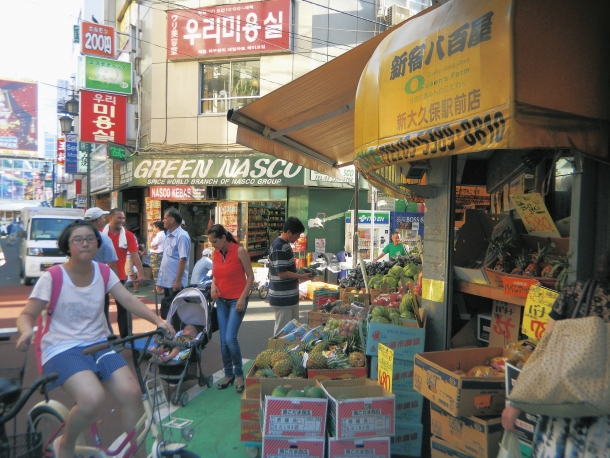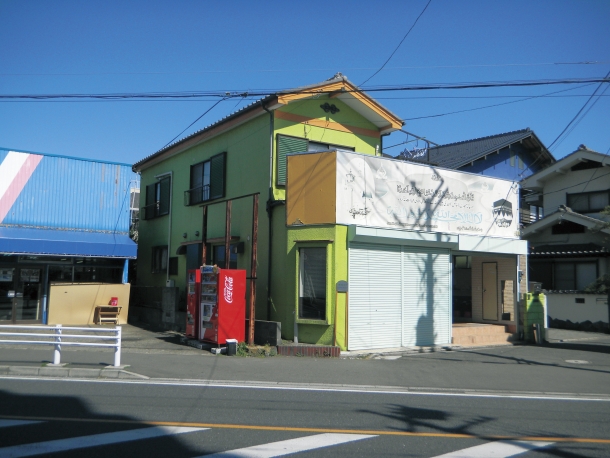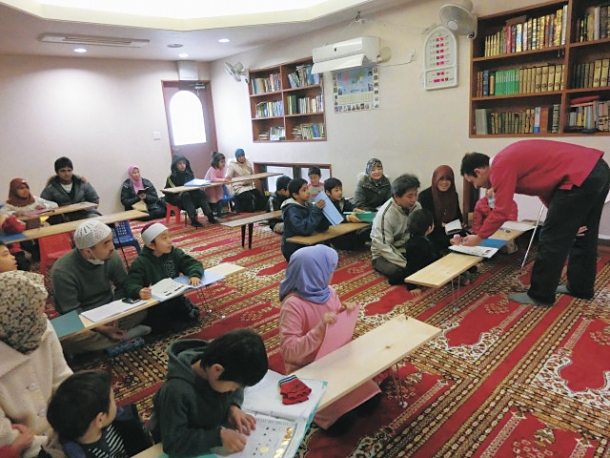Ever growing Muslim community in the world and Japan
Fri, Aug 25, 2017-
Tags
The first step in living in harmony starts from taking an interest in the other party
“By the end of this century, Muslims will overtake Christians to become the world’s largest religion in terms of followers. In fact, it is not uncommon to find Muslim community in our surroundings. It is important for us to first lend a listening ear to better understand them in order for us to live in harmony with the Muslim community,” says Professor Tanada from the Faculty of Human Sciences, Waseda University.

Tokyo Camii (mosque) in Yoyogi, Tokyo. It mosque conducts tours and other activities for the general public from time to time. (photo contributed by Research Associate Hirofumi Okai)
Islam, the world’s fastest growing religion
In 2016, more than 20 million tourists visited Japan and among them, Muslim tourists have become more common nowadays. Particularly in Southeast Asia, there has been a surge in Muslim tourists coming from the Middle East since the beginning of the 21st century. With more than 2 million Muslims going on pilgrimage to Mecca and an increasing number of Muslim tourists travelling overseas every year, Muslims have attracted attention in international tourism market.
The world population of Muslims has been increasing exponentially since the past decade. Its world population stood approximately at 1.6 billion in 2013 and is estimated to reach 2.9 billion (making up 26% of the world population) by 2050. There are currently 21 Muslim-majority Asian and African countries highly influenced by Islam. Among them, countries such as Bangladesh, Egypt, Indonesia, Iran, Pakistan and Turkey are expected to grow as consumer market, 1.2 billion in terms of consumer population.
The gross domestic product (GDP) per capital (a measurement commonly used to determine the purchasing power of individuals) of Muslim-majority countries such as Qatar, United Arab Emirates and Saudi Arabia are all way above Japan’s. As such, the increasing population growth of Muslims in future is likely to have a strong impact on the global community and economy, especially in Asia, which is the home to 70% of Muslims in the world.

Islamic Alley in Shin-Okubo, Tokyo (photo contributed by Professor Tanada)
Muslim-minority countries
With Muslims living in more than 200 countries in the world, they possess an extremely strong global presence. Even in Muslim-minority countries, the population of Muslims is seeing an growing trend and has come to carry a strong significance of Islamic presence and activities in these countries. Due to reasons such as heavy immigration of Muslims to Western Europe after World War 2 when Europe was experiencing an economic growth and manpower shortage, there are currently more than 15 million Muslims living in Western Europe. Additionally, millions of Muslims currently live in France, Germany and United Kingdom respectively. In these three countries, there are also many halal shops and over 2,000 Islamic mosques. The prevalence of Muslims has become more visible than ever.
Japan, which is also a Muslim-minority country, also experienced a growth in Muslim population during the bubble economy. Based on the data from 2016, there are currently approximately 120,000 overseas Muslims and 10,000 Japanese Muslims living in Japan. Although most Muslims in Japan lives in the three major metropolitan areas (Greater Tokyo Area, Chukyo Metropolitan Area and Kinki Region), the Muslim network has never ceased expanding throughout Japan.
Since the beginning of 1990s, there has been an increasing number of mosques being built across the Japanese archipelago, from Okinawa prefecture all the way to Hokkaido prefecture. Even though there are currently over 90 mosques throughout Japan, most Japanese are unaware of it. Nevertheless, as there is an increasing number of movements and initiatives that aimed to promote understanding of Islam and Muslims in recent years, more and more mosques are accepting mosque tours and organizing events for Japanese to participate.

A building near Tokorozawa Campus of Waseda University that is reformed to serve as a mosque. (photo contributed by Professor Tanada)
Diversity in Muslim community
The Muslims living in Japan come from diverse backgrounds – nationality, ethnicity, culture, lifestyle, clothing, etc. Some Muslims strictly follow customs and traditions such as prayers and fasting, while others enjoy more freedom. As such, people who have never met or interacted with a Muslim might have misconceptions and stereotypes about them.
In order to better understand Islam and Muslims, it is necessary to interact with them personally. However, as they are still a minority-community in Japan, it is not common to have such opportunity in our daily lives. While it is not easy to change our misconceptions and stereotypes about the Muslim community painted by the media, I hope people could start by taking an interest in them and visit mosques that are open to the general public.
It is estimated that the population of Muslims will continue to grow in Europe and Japan, but the growth does not only lies in the number of Muslim immigrants. In countries like England, half the population of the Muslim community is born and raised in these countries. Even in Japan, about half of the permanent Muslim residences have settled down and established a family, suggesting that Japan will see an increase in the number of second and third generation Muslims in the future. These Muslims are going to be “hybrid Muslims” that will be exposed to diverse cultural backgrounds. They would be the key people to help bridge the local community with the Muslim community. I hope that when we meet them in the near future, we will be able to learn and work together in harmony.

Gyotoku Mosque in Chiba prefecture (Japan) where second generation Muslims attend Arabic class (photo contributed by Naoki Maeno)
Professor Hirofumi Tanada. Faculty of Human Sciences, Waseda University

Professor Tanada was born in Fukuoka in 1949. Majoring in Arabic language, he graduated from the Faculty of Foreign Language at Tokyo University of Foreign Studies. After which and went on to further his studies and completed the doctoral program at the Graduate School Division of Letters in Waseda University. Professor Tanada specialization lies in Asian and Egyptian Studies.
*This is a translated article and the original article is written in Japanese by Professor Tanada. In case of discrepancy, the Japanese version shall prevail.














